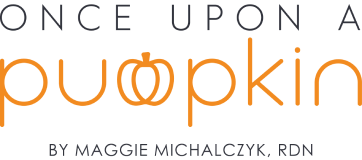As a millennial, all of the noise from the media, social media and advice and influence from other generations has likely made it hard to know what’s best for your body. Here are my key tips for millennial nutrition, and how to do what’s best for you.
As millennials, we want to have our avocado toast and eat it too. To me this means we want to stay up on all the latest health & nutrition trends while also making the best possible choices we can for our own health. We want trendy, delicious, Instagram worthy food that’s good for us (and good for the planet). But just like most things, it’s a little more complicated than that.
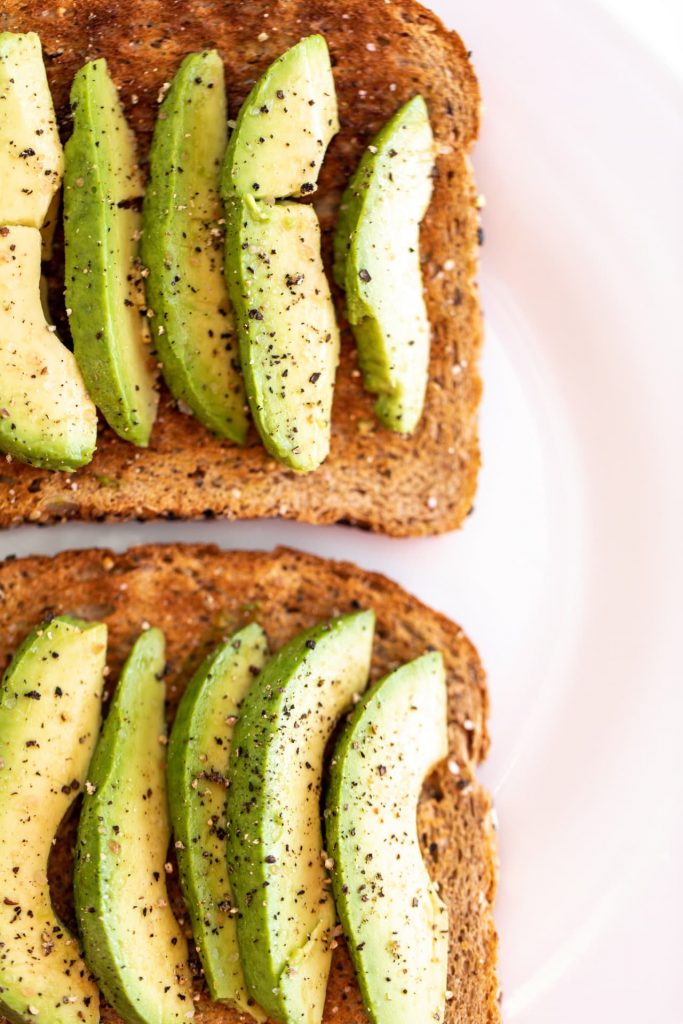
Now, seeing the “what I eat in a day” TikTok and Instagram videos, I wanted to write this article to provide more guidance for you in case you’re lost and confused about what steps to take for your own health. There are core principles to eating well and finding a wellness approach that works for you, and there is also a lot out there that can make it difficult to find that. As a dietitian, I want to help.
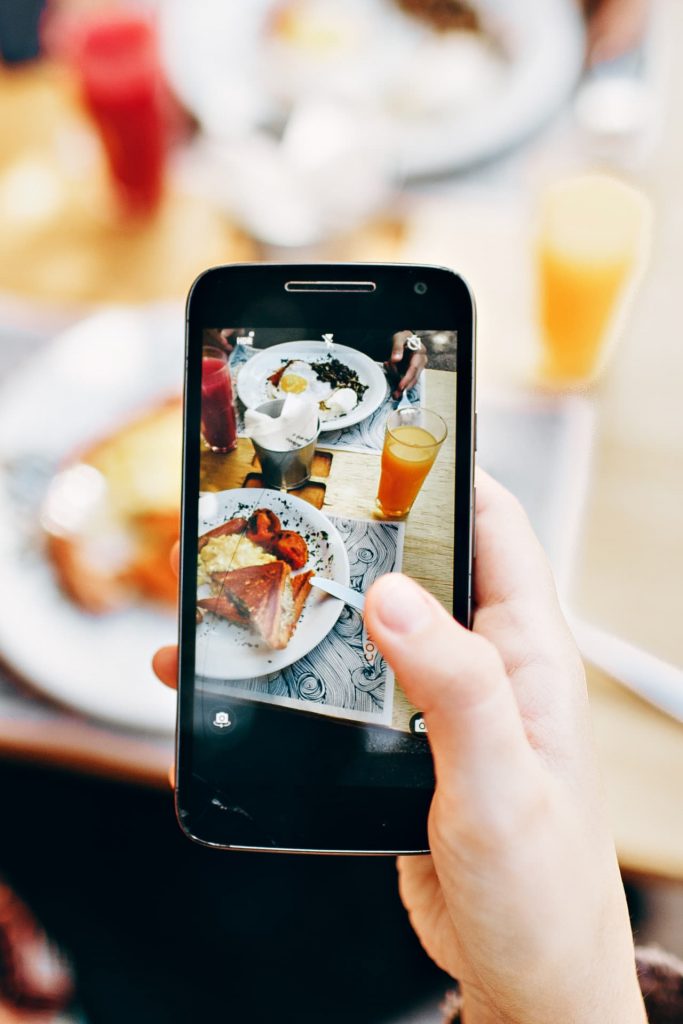
Millennial Age Group
For reference, the millennial age group is generally between the ages of 26-41 (in 2022) – me included! We were born between the years 1981-1996.
Gen Z’ers are people born between 1997-2012.
My Approach to Nutrition as a Millennial Dietitian
As a Registered Dietitian, it’s always been important to me to make my approach to nutrition and my nutrition principles transparent. I’m a strong believer in working on your relationship with food rather than dieting. I don’t think it’s bad to want to lose weight for the right reasons, but it should never be at the expense of your mental or physical health.
My goal is to help women build more food confidence – aka stop second guessing every food choice you make based on what the media says or unrealistic standards, and instead, tune into what makes YOU feel your best!
Body love is a huge component of this as well, because life’s too short to spend it constantly trying to change your body. Food is much more than just calories. It’s culture, it’s fun, it’s connection, it’s love, it’s creativity, it’s seasons, and it’s JOY. Don’t forget to keep this in mind on your own journey.
Millennial Traits & Characteristics
If I were to sum up millennials in a few key phrases (which I think you can’t really do due to our complex personalities!), I would classify us as:
- Go-getters
- Learners
- Tech-savvy individuals
- Team-oriented
- Goal-oriented
I’d even say at times, the go-getter and learner in us paired with the tech-savviness we have with social media can enter us into a rabbit hole of information that can do more harm than good, especially when we’re talking about the health and wellness space.
Are Millennials More Health Conscious?
The majority of millennials are very health conscious because of the exposure we’ve had to more nutrition and wellness information online. The mix of new diets (looking at you Paleo, Gluten-free, Keto, and Whole30) paired with an overabundance of images of Facetuned women online have flooded our feeds over the years.
And now, transitioning from our 20s to our 30s, there are even more elements at play that make focusing on our health a priority.
Understanding Where Millennial Women Fit In
Millennial women are a unique group because we grew up with the rise of technology, primarily social media. When I was in college, Facebook was the main social media platform we used, and Instagram quickly started to gain traction. I’m sure you feel the same way, but it’s almost impossible to imagine a world without social media.
Even though there are many positive experiences and opportunities that social media can open the door too, there are also some not so great things about it like how it perpetuates comparison culture and misinformation.
Finding Trusted Information
When it comes to nutrition, we’ve seen many trendy diets fizzle in and out of popularity. And there’s a constant changing landscape of new health “trends” that truthfully often don’t even make any sense.
Spending time to find trusted nutrition and wellness information sources is a great place to start on your wellness journey to quiet the unnecessary noise. Remember that confusing information and misinformation can take a toll on your mental health too.
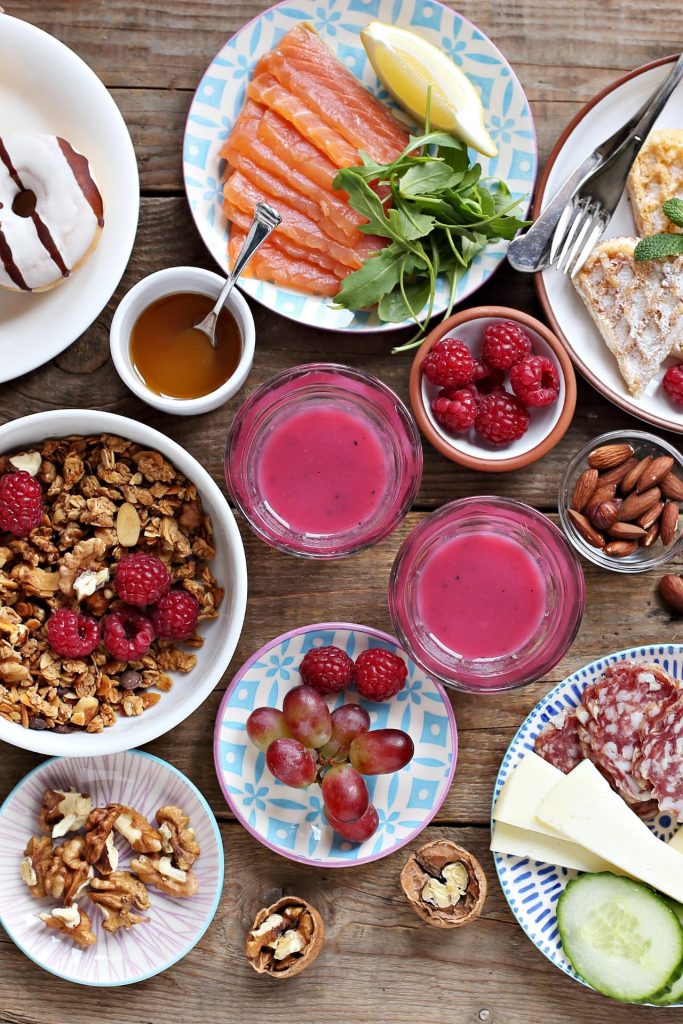
Millennial Diet
While it’s no secret that many millennials follow some sort of diet, I’m a strong believer in forming a healthy relationship with food where you’re able to include the foods that you love while also feeling comfortable and happy in your skin. I want to help millennial women gain more confidence in their food choices and ditch fad diets forever.
This is something that took me a while to figure out, but now I can happily say that I found a good balance between paying attention to the quality of foods I eat and not feeling guilty about eating dessert too. I promise this type of relationship with food is possible for you too.
Below, I’ve included some things to keep in mind if you’re a millennial woman trying to better your relationship with food and your body.
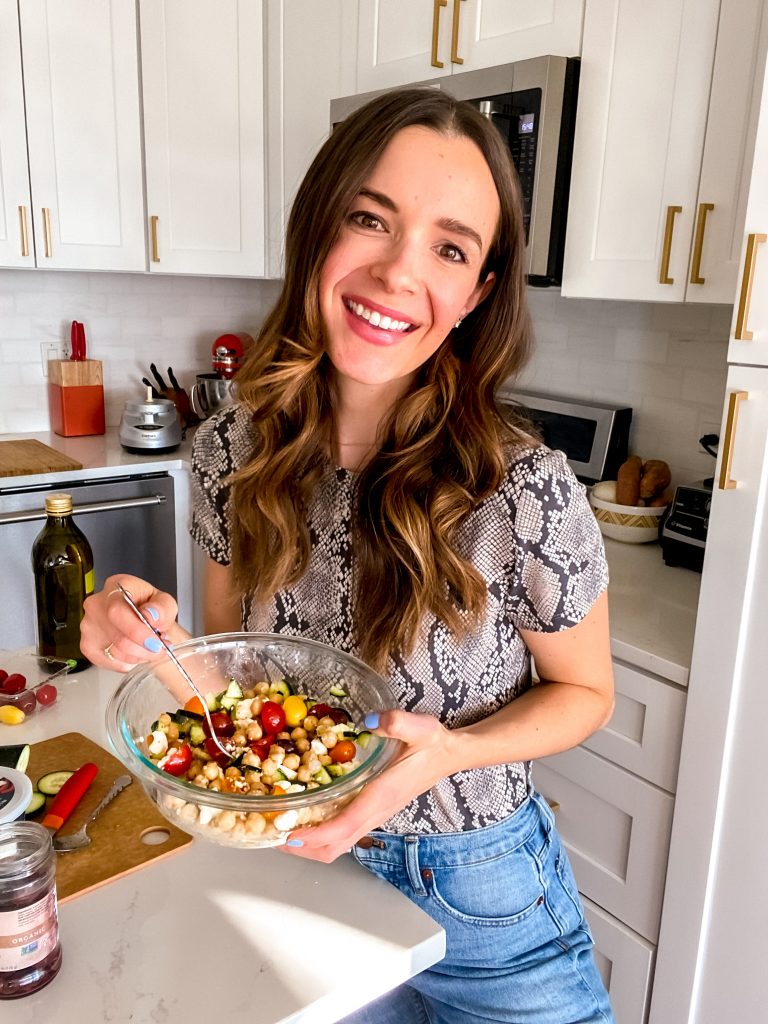
My Main Recommendations for Millennial Nutrition and Wellness
Here are 5 things I would say to always keep in mind if you’re a millennial looking to better your nutrition and wellness.
- Even if we all ate the same foods and did the same exercises, we would have different, unique and beautiful bodies.
- The diet industry is a billion dollar industry. When you see a new trend, fad, or magic pill that looks too good to be true, remember to always question its efficacy. Do your research, or even check in with a registered dietitian to vet products and supplements before spending your money on it.
- What a stranger on the internet might be doing for their health is not necessarily (pretty much never!) what you should be doing for your health. It’s important to listen to your body and figure out what works for you.
- Stressing over every single food you eat is no way to live life. When you level the playing field instead of having “good” and “bad” foods you take a lot of mental energy out of your food choices that you can use elsewhere.
- Life is too short to spend it constantly at war with your body. Loving yourself for who you are and how you look right now is tough in this society, but doing so I believe is one of the best things you can do for the most important relationship in your life — the one you have with yourself!
Key Takeaways About Millennial Nutrition
While there’s not a one-size-fits-all approach to millennial nutrition–and I really hope there never will be because we’re all such unique and special human beings–there are general healthy habits you can focus on to stay on track. Remember to pay attention to what works best for you and not what all of the trends are telling you. This will hopefully help you stay true to what you feel is right.
In addition to highlighting seasonal recipe and pumpkin everything, my ongoing goal with Once Upon a Pumpkin is to create health and nutrition content you can relate to. Whether it’s nutrition information, easy and delicious recipes, nutrition trends, or debunking common misconceptions I see out there in the nutrition world, I’m here to be transparent and help you along your journey.
Feel free to subscribe to my newsletter to always get the latest updates, and I’d love if you’d join my community on Instagram if you’re not already a part of it!
XO, Maggie, your fellow millennial
